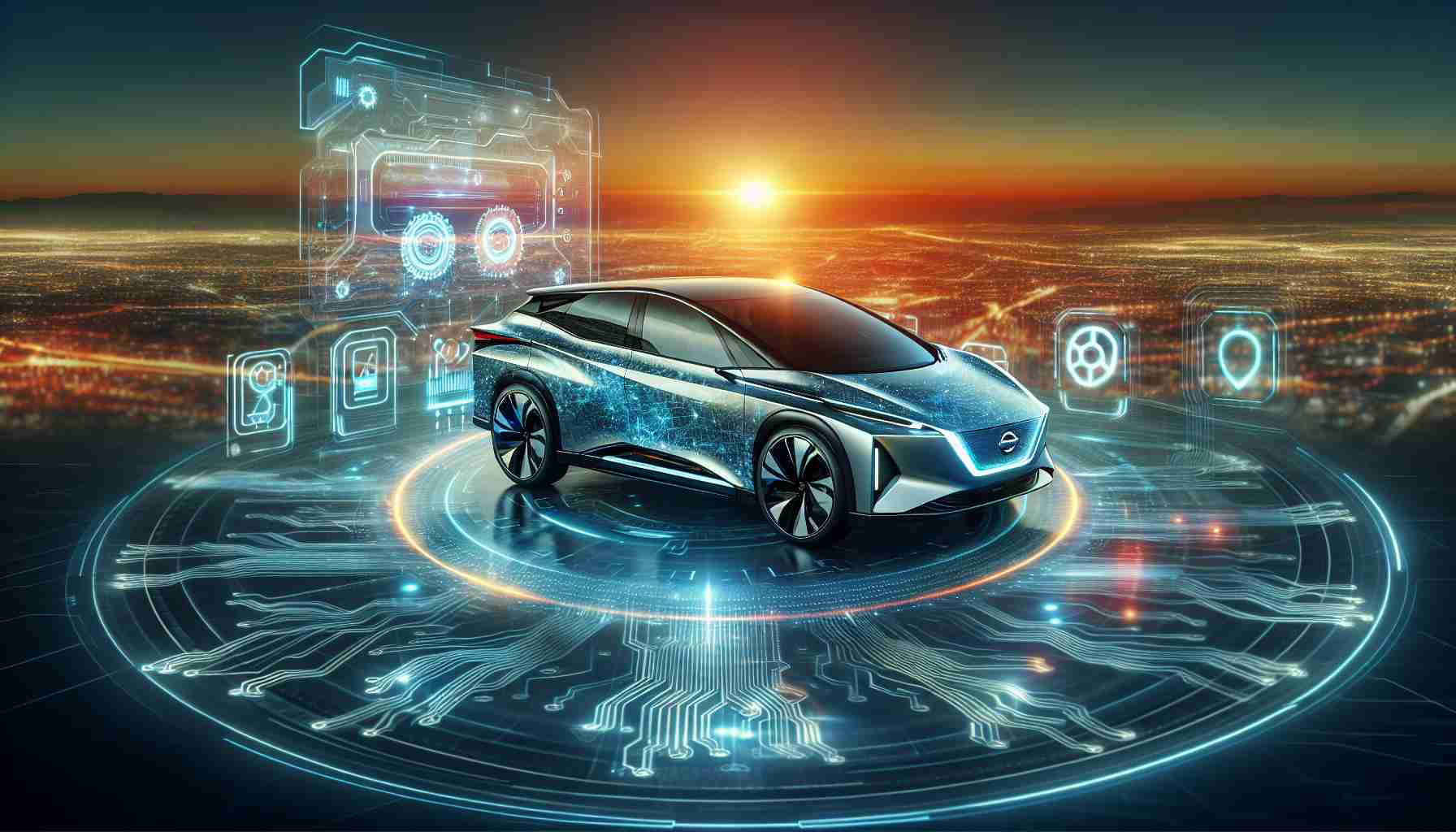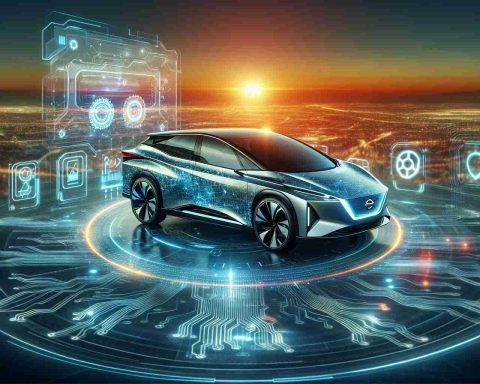- Nissan ends its merger with Honda to focus on EV dominance.
- Production declines and workforce cuts heighten the urgency for innovation.
- A potential collaboration with Foxconn could enhance Nissan’s tech capabilities.
- Nissan is concentrating on developing software-defined vehicles to improve performance and user experience.
- Foxconn’s involvement with Renault suggests it could be a valuable partner for Nissan.
- Partnerships with tech leaders are crucial for maintaining Nissan’s competitive edge.
- The automotive industry keenly observes Nissan’s strategic moves and upcoming earnings reports.
Nissan has taken a dramatic turn in its quest for electric vehicle (EV) dominance by ending its ambitious merger with Honda. As this automotive giant shifts gears, all eyes are on its next moves in the rapidly evolving EV landscape.
Amid declining production and looming workforce cuts, Nissan’s urgency to innovate has never been higher. Rumors suggest a potential alliance with Foxconn, the tech powerhouse known for its work with Apple. This collaboration could inject much-needed tech savvy into Nissan’s EV lineup, positioning it at the forefront of the automotive digital revolution.
With a keen focus on developing software-defined vehicles, Nissan aims to push boundaries in performance and user experience. The potential Foxconn collaboration might just be the spark needed to kickstart Nissan’s new direction. Foxconn’s foray into the automotive sector, bolstered by its talks with Renault, places it as a promising partner to revitalize Nissan’s strategy.
Nissan’s future hinges on creating vehicles that are not only innovative but resonate with the market. Industry analysts point to a pressing need for partnerships with tech leaders to maintain a competitive edge. The upcoming earnings reports will be crucial in painting a clear picture of Nissan’s strategic success.
The question remains whether Nissan’s bold new path, possibly alongside Foxconn, will steer them toward success or stall their momentum in the competitive EV race. As Nissan navigates this transformative journey, the automotive world is watching eagerly to see if this move will drive them forward.
Stay tuned for more updates on Nissan’s technological evolution and share your thoughts—is this partnership the game-changing strategy Nissan needs?
Nissan’s Bold Leap into the Future: A Tech-Driven Transformation
# Nissan’s Strategic Shift: Exploring New Directions in the EV Market
Nissan has taken a dramatic turn in its quest for electric vehicle (EV) dominance by ending its ambitious merger with Honda. As this automotive giant shifts gears, it positions itself for new opportunities in the rapidly evolving EV landscape. Facing declining production and looming workforce cuts, Nissan’s urgency to innovate has never been higher. Here, we dive into key aspects of Nissan’s strategic shift, including potential collaborations, market impacts, and technological advancements.
How might a potential collaboration with Foxconn impact Nissan’s EV strategy?
Nissan is rumored to be considering a collaboration with Foxconn, the tech powerhouse known for its work with Apple. This potential alliance could significantly influence Nissan’s strategy in three main ways:
1. Technological Advancement: By partnering with Foxconn, Nissan could leverage cutting-edge technological capabilities, particularly in software development and digital integration. This would enhance Nissan’s ability to produce software-defined vehicles that offer superior performance and user experience.
2. Market Positioning: Foxconn’s existing talks with Renault place it as a promising partner to reignite Nissan’s competitive edge in the automotive sector. A successful collaboration could help Nissan regain its standing in the EV market.
3. Innovation in Design and Manufacturing: Access to Foxconn’s expertise might streamline Nissan’s design and production processes, enabling the creation of innovative models more quickly and efficiently.
What are the potential risks and challenges Nissan may face with this new direction?
While the potential collaboration with Foxconn presents exciting opportunities, there are also several risks and challenges:
– Integration Challenges: Merging automotive and tech industries requires overcoming significant integration obstacles, particularly in aligning business cultures and operational practices.
– Market Uncertainties: As the EV market evolves rapidly, any delay in execution or misalignment with market demands could stall Nissan’s momentum.
– Reliance on Partnerships: Over-dependence on external tech partners might limit Nissan’s ability to innovate independently in the long term.
What are the implications of Nissan’s shift for the broader EV market?
Nissan’s strategic realignment could have notable implications for the broader EV market:
– Increased Competition: Introducing vehicles with enhanced tech capabilities can intensify competition, compelling other automakers to accelerate their innovation strategies.
– Technology Integration Trends: Nissan’s move highlights a growing trend of deeper technology integration in automotive manufacturing, encouraging other companies to explore similar collaborations.
– Sustainability Focus: As Nissan prioritizes technological and sustainable solutions, it may galvanize industry-wide efforts towards eco-friendly innovation.
Stay informed as Nissan embarks on this transformative journey, and consider the broader implications of this potential partnership on the automotive sector.
For more insights on the automotive industry’s developments, explore Nissan’s Official Site and Foxconn’s Official Site.













